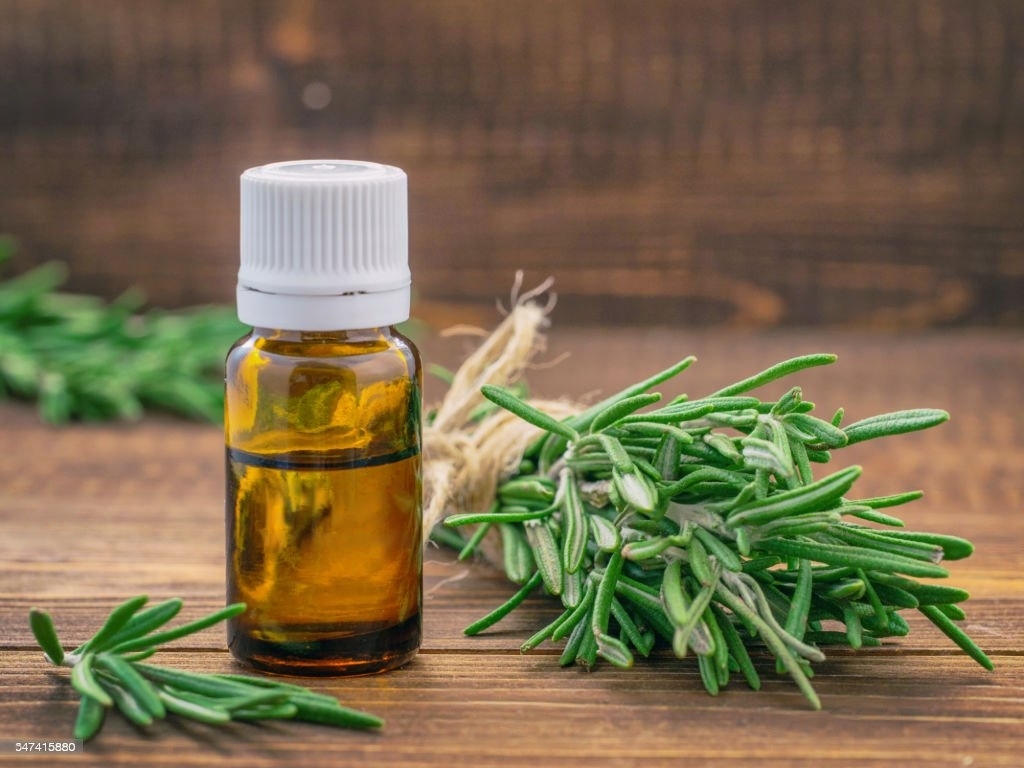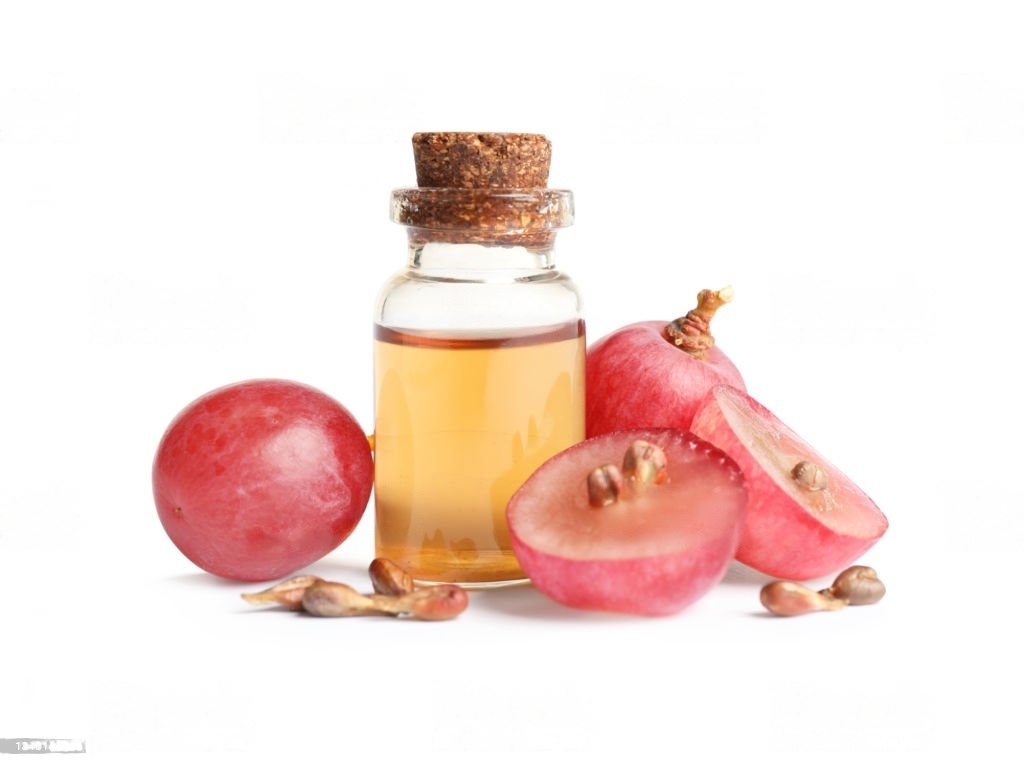
Aromatherapy gives a unique position to rosemary oil because of its energizing and sharp aroma. Steam distillation produces rosemary essential oil from the aromatic Rosmarinus officinalis. It is a popular option for those looking to improve cognitive function because of its stimulating characteristics, frequently used to aid mental clarity, attention, and concentration.
Fresh Rosmarinus officinalis leaves are steam distilled to produce rosemary essential oil. After cooling, the steam-oil mixture separates into essential oil and water. Steam gently carries aromatic chemicals and essential oil molecules from the plant. The essential oil that is lighter rises to the top and is gathered. The healing properties and smell of the plant are preserved through this detailed process. Aromatherapy uses rosemary essential oil to improve concentration, mental clarity, and physical well-being.
Ancient civilizations like the Egyptian, Greek, and Roman societies all held regard for Rosemary. The Egyptians used Rosemary for its aromatic fragrance in perfumes. At the same time, the Greeks and Romans believed it to improve memory. And they used it in rituals, festivals, and educational settings. Its inclusion in traditional medicine strengthened its standing as a representation of loyalty, and safety. This article will cover its health benefits, usage, precautions, and side effects.
Health Benefits of Rosemary Oil
Since ancient times, Rosmarinus officinalis plant-derived rosemary essential oil has been prized for its countless health advantages. This essential oil’s varied qualities supporting physical and mental wellness make it an important component in aromatherapy.
Cognitive Enhancement
The active components in this oil, such as 1, 8-cineole, may stimulate brain activity and improve cognitive abilities, including memory and focus, which could positively affect cognition. The scent of the oil may help people stay attentive. While growing interest in its usage to improve cognition through inhalation, diffusion, or topical administration, more research is required to understand its processes and cognitive advantages fully.
Pain Relief
Rosemary oil’s analgesic qualities make it helpful in reducing joint and muscle pain. When combined with carrier oil, the skin can be massaged with Rosemary essential oil to alleviate stiffness, arthritis, and tense muscles.
Respiratory Support
The oil inhalation can benefit respiratory health. People with colds, allergies, or respiratory congestion can benefit from it because of its expectorant properties, which aid in alleviating congestion. The oil can be used in chest rubs or inhalations of steam to relieve respiratory discomfort.
Digestive Aid
With its natural components, including rosmarinic acid and cineole, this oil can be a digestive aid by reducing bloating, easing discomfort, and promoting overall gastrointestinal well-being. To improve bile production and relax gut muscles, it may improve digestion. Although growing interest is in utilizing this oil for holistic digestive health via aromatherapy, massage, or herbal therapies, further studies are required to establish its advantages and mechanisms.
Stress Relief
The relaxing properties of the oil have generated interest in stress reduction. Linalool and camphor are aromatic substances that are supposed to calm the nervous system, reducing anxiety and promoting relaxation. The use of this oil in methods of relaxation, like aromatherapy or massage, provides a natural way to lower stress. Although personal experience is encouraging, more scientific research must demonstrate its efficacy in managing stress.
Antioxidant Protection
Significant antioxidant features of the oil contribute to its potential beneficial effects. By neutralizing harmful free radicals in the body, its abundant antioxidant makeup, which includes rosmarinic acid and carnosic acid, may aid in the fight against oxidative stress. These substances have demonstrated the potential to protect cells from harm, promote skin health, and minimize the risk of chronic diseases.
How to Use the Rosemary Oil

Since everyone reacts differently to essential oils, it’s best to start with a small dose and look for any side effects. For a safe and productive experience, obtaining guidance from a licensed aroma therapist or healthcare expert is advised if you are new to using essential oils or have specific health issues.
Aromatherapy and Diffusion
Rosemary essential oil is used in aromatherapy through diffusion, a technique that uses the oil’s aromatic characteristics for medicinal purposes. The oil molecules are spread out through diffusion, making it possible to breathe it in and absorb it through the respiratory system. The stimulating aroma of Rosemary can improve concentration, promote mental clarity, and promote relaxation. The energizing effects of the oil on the body and mind can be experienced through a diffuser, personal inhaler, or steam inhalation.
Topical Application
- Rosemary oil’s concentrated form is applied topically for potential health benefits.
- Constituents like camphor, rosmarinic acid, and 1,8-cineole offer anti-inflammatory, analgesic, and antibacterial properties.
- Massaging or diluting this oil in carrier oils can help alleviate minor pains, improve skin health, and promote muscle relaxation.
- Patch testing is recommended due to varying skin sensitivities.
- Anecdotal evidence supports its efficacy, but further research is needed to substantiate its applications and best practices.
Internal Use
Small doses of this oil are taken internally for possible health advantages. The oil contains substances like rosmarinic acid and 1, 8-cineole that are thought to benefit the digestive system and act as antioxidants. This oil can enhance flavor and promote digestive health when used in cooking or diluted in drinks. Due to its potency, internal use should be done with caution, and consulting a healthcare provider is advised to ensure safety and the correct dosage.
Patch test for an essential oil
- Pick an area on your skin that is free of wounds or allergies.
- Combine carrier oil and essential oil (2–3% concentration).
- Gently massage the skin with a small amount of the diluted substance.
- Apply an adhesive bandage and wait 24 hours.
- Check for swelling, itching, and redness.
- 24 hours later, check for reactions.
- If there is no irritation, it is probably safe to use; if there is, avoid using it.
Precautions for sensitive individuals and children
Due to their increased sensitivity to essential oils, sensitive people and children should always be treated with extra caution when using this oil. Here are some safety measures to consider about:
- Before applying this oil to a larger skin area, perform a patch test.
- If the oil gets in your eyes, nose, or mouth, it might irritate you. While utilizing it, please keep it away from these places and thoroughly wash your hands.
- Take special care of newborns and children. Because of their more sensitive bodies and skin, avoid to apply essential solid oils like Rosemary to children is frequently advised.
- Essential oils are highly potent and concentrated. Before using this oil on your skin, always dilute it.
- Consult a medical specialist before consuming rosemary oil if you have any medical conditions, particularly epilepsy, high blood pressure, or any other chronic disease.
- Keep avoiding directly exposed skin to the sun for health conditions for at least 12 to 24 hours.
- Store this oil in a cool, dark place, away from direct sunlight and heat.
- During pregnancy or nursing, women should use it with caution and should consult with their healthcare professional before doing so.
- It is typically advised to utilize this oil with the necessary instruction from a certified aroma therapist or healthcare professional.
Conclusion
Rosemary oil exhibits the complexity of aroma by providing essential considerations and potential health advantage ability, which ranges from improving mental clarity to facilitating breathing; it must be used with caution properly. However, during pregnancy can be used with caution due to potential adverse effects. Suitable dilution is essential. While there are many applications for massage, inhalation, and diffusion, internal use needs to be handled carefully. By seeking the help of a professional, you may maximize the benefits and minimize the hazards of your journey while using this oil.








Leave a Reply